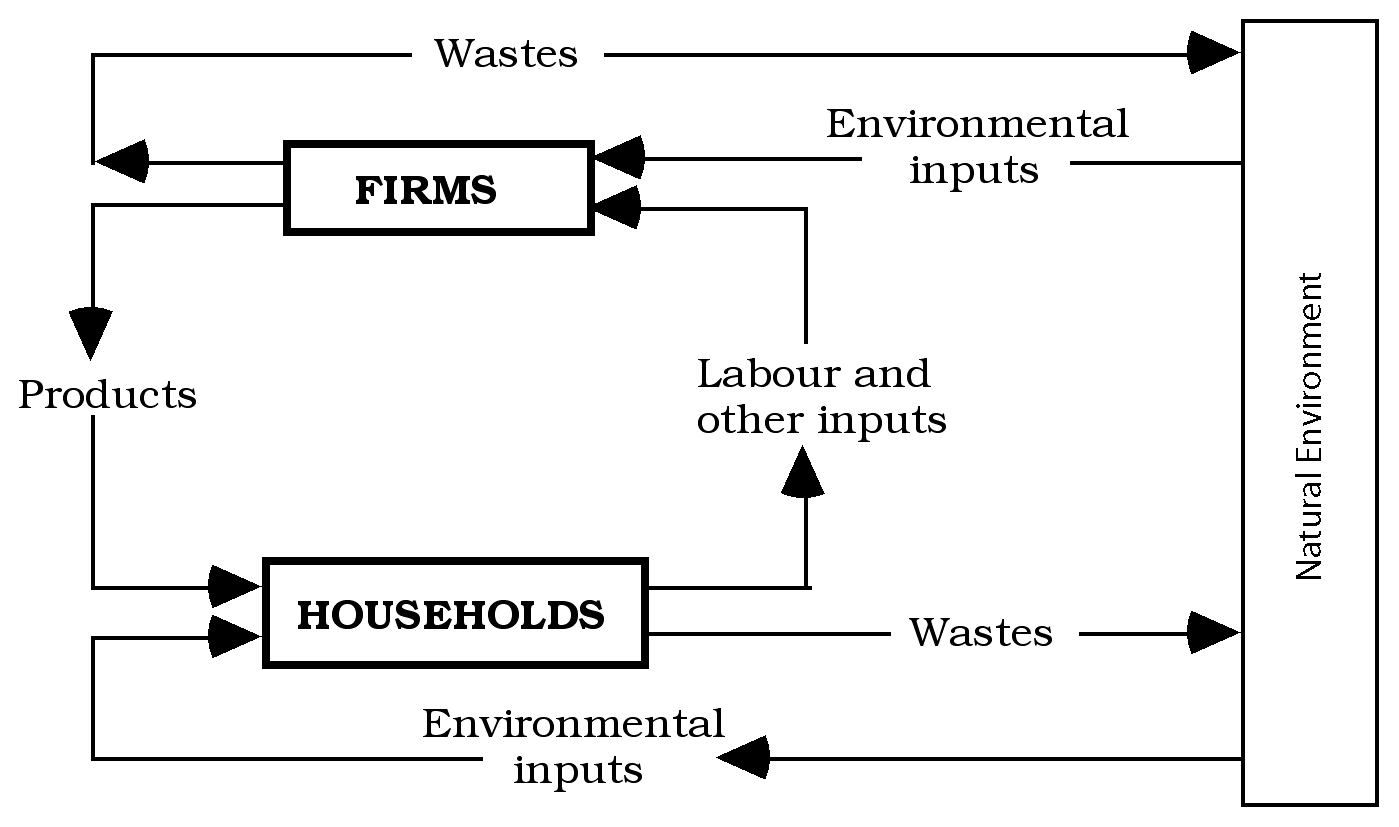Sustainable development means incorporating the environment into the economic system. David Pearce and his colleagues, in their report on sustainable development to Margaret Thatcher, the British Prime Minister at the time, said that the principles of sustainable development meant recognising that `resources and environments serve economic functions and have positive economic value.'
Considered as a component of the economic system, the environment is seen to provide raw materials for production and to be a receptacle for wastes from production.

D.J.Thampapillai wrote in his text on Environmental Economics:
Clearly, the natural environment is an important component of the economic system, and without the natural environment the economic system would not be able to function. Hence, we need to treat the natural environment in the same way as we treat labour and capital; that is, as an asset and a resource.
David James, as Commissioner of the Australian government Resource Assessment Commission said:
With better management of natural resources we could obtain a larger supply and wider range of goods and services. This is the central notion of sustainable development. It involves making decisions about the optimal composition of the economy's capital stock, including human capital, man-made capital and natural resource stocks. We should be attempting to manipulate the total capital stock in such a way that the welfare of society is maximised.
Whilst James, as an economist, puts forward an obviously economic definition of sustainable development, the usual definition by the Brundtland Commission — "development that meets the needs of the present without compromising the ability of future generations to meet their own needs" — is not so different.
James points out that economists are interested in the environment to the extent it can ensure a continuous supply of goods and services to meet human wants and this seems to be the intent of the Brundtland Commission's definition of sustainable development which makes no specific mention of the environment.
When viewed in this way, as a source of inputs and a sink for outputs of the economic system, the protection of the environment moves to a secondary and indeed supplementary position with respect to economic goals. Sustainability becomes a problem of how to sustain the economic functions of the environment rather than how to sustain the environment. And this means that sustainable development may curb the worst instances of environmental degradation when they are foreseen but in the event of a clash between economic and environmental goals, economic goals will take precedence.